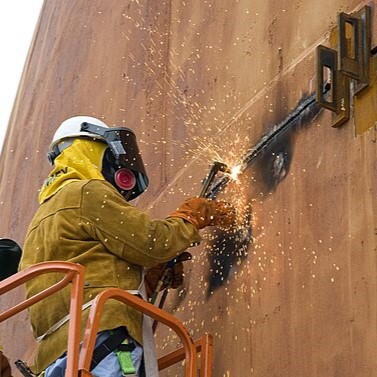(Dis)Empowered Communities: A Comparative Study of Decommissioning Nuclear Sites
What happens to nuclear power plants and facilities when their productive life comes to an end? At a time when nuclear energy is being presented as a “green” solution to the climate crisis, this question is an urgent one. While experts evaluate and invest in technological innovations, financing schemes, and guidelines for safely retiring obsolete nuclear facilities, there is a lack of engagement with the problems that local communities face when nuclear plants shut down, including their economic future and the ecological implications of decommissioning operations. The project team addresses this complex issue through the first comparative, multidisciplinary study of nuclear decommissioning in Western Europe and the United States.
(Dis)Empowered Communities brings together scientific partners and partners outside of academia (researchers, non-profit organizations, and filmmakers) to challenge the current top-down approach that only considers experts’ views. The project promotes and advances a series of transformative initiatives to provide selected nuclear host communities (and beyond) with opportunities for substantial participation and evidence-based advice on how to organize and deal with the socio-ecological and economic challenges of decommissioning. In addition, the team proposes to integrate social, environmental, and cultural factors into decommissioning regulatory requirements and to make decommissioning itself visible as an integral part of nuclear facilities’ lifecycle. The results will be made available to policymakers, experts, and local communities in a scientific monograph and in articles, as well as in a documentary film, a dedicated website, and two public workshops followed by recommendations for action. This will stimulate informed and timely public debates on the possibilities and challenges for future investments in nuclear power production.
The five-year project is based at the Rachel Carson Center for Environment and Society at Ludwig-Maximilians-Universität Munich. The project leader and coordinator, Dr. Davide Orsini will conduct research with two doctoral students on selected decommissioning sites in Italy, Germany, and Belgium. Jim Hamilton and Elisabeth Sinclair of Nuclear Decommissioning Collaborative will address the same questions at selected sites in the United States. Tobias Büchner of Buchner Film and director Sabine Herpich will develop and organize the production of a documentary film on nuclear decommissioning sites and the communities living around them.


